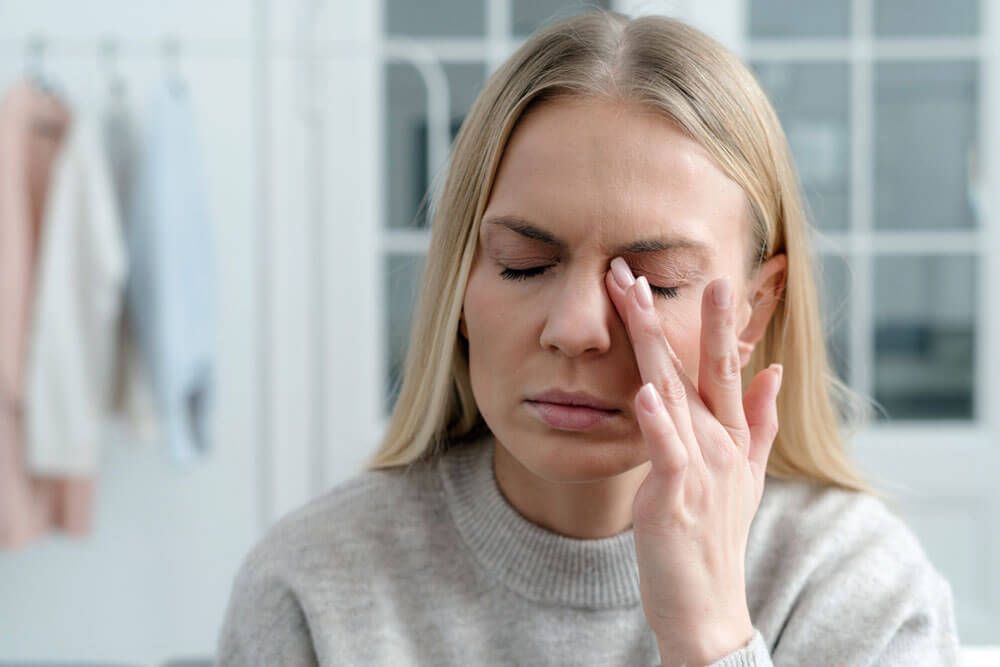Dry Eye Disease is a common yet often misunderstood condition that affects millions of people worldwide. This chronic condition can significantly impact one’s quality of life, making everyday activities like reading, driving, or even watching television uncomfortable. At Colorado Eye Clinic in Denver, we are committed to helping our patients understand dry eye disease, identify its causes, and find the most effective treatments tailored to their needs.
What is Dry Eye Disease?
Dry Eye Disease occurs when your eyes do not produce enough tears or produce poor-quality tears, leading to discomfort and vision problems. Tears are essential for maintaining the health of the front surface of the eye and providing clear vision. When the eyes don’t produce enough tears or the tears evaporate too quickly, it can result in dryness, irritation, and inflammation.
Causes of Dry Eye Disease
There are several factors that can contribute to the development of dry eye disease, including:
- Age: As we age, tear production naturally decreases. Dry eyes are common in people over 50.
- Gender: Women are more likely to develop dry eye disease due to hormonal changes caused by pregnancy, birth control, and menopause.
- Medical Conditions: People with rheumatoid arthritis, diabetes, thyroid disorders, and other autoimmune diseases are at higher risk of developing dry eyes.
- Medications: Certain medications, such as antihistamines, decongestants, blood pressure medications, and antidepressants, can reduce tear production.
- Environmental Factors: Exposure to smoke, wind, and dry climates can increase tear evaporation, leading to dry eyes. Prolonged use of digital devices can also contribute to dry eye symptoms.
- Contact Lens Use: Long-term use of contact lenses can be associated with dry eye disease.
Who is Affected by Dry Eye Disease?
Dry Eye Disease can affect anyone, but certain groups are more susceptible than others. It is particularly common in older adults, women, and individuals with specific medical conditions or those taking certain medications. People who frequently use digital devices or contact lenses may also experience dry eye symptoms.
Common Questions and Concerns About Dry Eye Disease
1. What are the Symptoms of Dry Eye Disease?
Symptoms of dry eye disease can vary but commonly include:
- A stinging, burning, or scratchy sensation in your eyes
- Sensitivity to light
- Redness of the eyes
- A sensation of having something in your eyes
- Difficulty wearing contact lenses
- Difficulty with nighttime driving
- Watery eyes, which is the body’s response to the irritation of dry eyes
- Blurred vision or eye fatigue
2. How is Dry Eye Disease Diagnosed?
Diagnosing dry eye disease involves a comprehensive eye examination. At Colorado Eye Clinic, our detailed evaluation includes reviewing your medical history, assessing the quality and quantity of your tears, and examining the surface of your eyes. Advanced diagnostic tests may be used to measure tear production and detect any underlying conditions contributing to dry eye symptoms.
Comprehensive Evaluation for Dry Eye Disease
At Colorado Eye Clinic, we provide a thorough and comprehensive evaluation for dry eye disease. This includes:
- Detailed Medical History: Understanding your medical background, current medications, and lifestyle factors that could contribute to dry eyes.
- Tear Film Analysis: Measuring the volume and quality of your tears to determine any deficiencies or imbalances.
- Ocular Surface Examination: Inspecting the front surface of your eye using advanced imaging techniques to detect any inflammation or damage.
This comprehensive approach ensures that we accurately diagnose the severity and underlying causes of your dry eye disease, allowing us to tailor a treatment plan specifically for you.
Personalized Treatment Options
Once dry eye disease has been diagnosed, the next step is to develop a personalized treatment plan. At Colorado Eye Clinic, we believe in treating each patient as an individual, understanding that dry eye disease affects everyone differently. Depending on the cause and severity of your condition, treatment options may include:
- Artificial Tears: Over-the-counter eye drops can provide temporary relief for mild cases of dry eyes.
- Prescription Medications: For more severe cases, prescription medications that reduce inflammation or increase tear production may be necessary.
- Lifestyle Modifications: Simple changes, such as taking breaks from digital screens, increasing humidity in your environment, and staying hydrated, can significantly improve symptoms.
- Nutritional Supplements: Omega-3 fatty acids have been shown to improve tear quality and reduce dry eye symptoms.
LipiFlow: Advanced Treatment for Dry Eye Disease
For patients with more advanced or persistent dry eye disease, Colorado Eye Clinic offers LipiFlow, a cutting-edge treatment designed to address a common cause of dry eye: Meibomian Gland Dysfunction (MGD).
What is LipiFlow?
LipiFlow is an FDA-approved treatment that uses thermal pulsation to unblock the Meibomian glands, which are responsible for producing the oil layer of the tear film. When these glands become blocked, tears evaporate too quickly, leading to dry eye symptoms. LipiFlow applies gentle heat and pressure to the eyelids, clearing blockages and restoring normal gland function. This treatment is performed in-office, is painless, and typically takes less than 15 minutes per eye.
Benefits of LipiFlow
- Quick and Effective: Most patients experience significant relief from dry eye symptoms within a few weeks of treatment.
- Long-Lasting Results: Unlike artificial tears or medications that provide temporary relief, LipiFlow addresses the underlying cause of dry eye, offering longer-lasting results.
- Non-Invasive: LipiFlow is a non-invasive treatment with minimal discomfort and no downtime.
Take Control of Your Eye Health
Dry Eye Disease can be frustrating, but you don’t have to suffer in silence. At Colorado Eye Clinic, we are dedicated to providing our patients with the most advanced and effective treatments available. Whether you’re experiencing mild discomfort or severe symptoms, our team is here to help you find relief and improve your quality of life.
If you have any concerns about dry eye disease or would like to schedule a comprehensive evaluation, call us today at 720-667-3852. Let us help you take control of your eye health and enjoy clear, comfortable vision.

